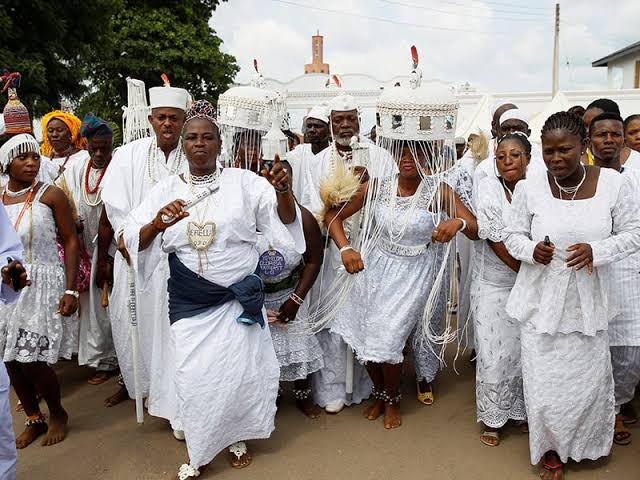African Religious Studies in Nigeria examine the country’s rich spiritual traditions, including indigenous beliefs and practices, and their impact on cultural and social life.

As traditionalists across the country celebrate the 2024 Isese Day, the Yoruba Council worldwide has called for the introduction of African religious studies in the curriculum of primary and secondary schools across the country.
African Religious Studies In Schools
The president of the Council, Oladotun Hassan made this known in Abuja.
The United Nations declared August 20 of each year as World Traditional Religion Day.
Certain states in the South West such as Lagos, Ogun, Oyo and Osun declared August 20 as a work-free day for the Isese festival.
People Also Read: Sanwo-Olu Declares Tuesday Work-Free For Isese Day
Speaking in Abuja, Hassan said: “It is known that African traditional religion is the foremost human practice on earth.
However, we are mindful of the heterogeneous state of affairs with diverse cultures and religions, hence the need to collaborate together to use our culture and traditions to add value to nation building.
“Peace is paramount in the development of a nation, hence we call for you to talk on the need to live in peace and harmony as citizens in Nigeria; amongst all citizens irrespective of race, party and religious affinities.
“We are bold enough to use this medium to urgently request and need to raise to the Federal Ministry of Justice and President Bola Ahmed Tinubu the urgent need to nationalize August 20 as a National Traditional Heritage Holiday and grant National Traditional Religion Commission just like Hajj Commission and Christian Pilgrims Commission.
“The need for deliberate Advocacy on the need to educate our children based on the declined Omoluabi ethos in our society. The need to introduce African Traditional Religious Studies in our education curriculum in all primary and secondary schools in Nigeria.”

